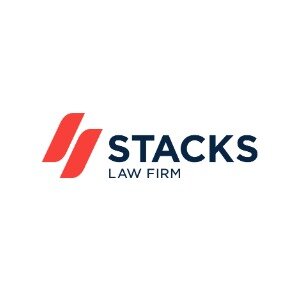Best Landlord & Tenant Lawyers in Forster
Share your needs with us, get contacted by law firms.
Free. Takes 2 min.
Free Guide to Hiring a Real Estate Lawyer
List of the best lawyers in Forster, Australia
About Landlord & Tenant Law in Forster, Australia
Landlord and Tenant Law in Forster, Australia is primarily regulated by state and territory legislation, particularly the Residential Tenancies Act 2010 (NSW). The Act outlines the rights and responsibilities of both landlords and tenants. It covers issues such as rents, repairs, maintenance, bonds, notices to vacate, and dispute resolution. Compliance with this law is crucial to maintaining a balanced and fair relationship between landlords and tenants.
Why You May Need a Lawyer
You may require legal advice if you are a landlord dealing with tenants who are in breach of their lease agreement, such as not paying rent or causing damage beyond normal wear and tear. Tenants may also require legal support if they believe their rights are being violated, such as being wrongfully evicted, living in unsafe conditions, or being subject to unfair rent increases. Lawyers can provide guidance, represent you at Tribunal hearings, and help navigate complex legal procedures.
Local Laws Overview
The key legislation that governs Landlord & Tenant Law in Forster is the Residential Tenancies Act 2010 (NSW). Some important aspects include: the requirement for written lease agreements; the landlord's obligation to ensure the property is fit for habitation; restrictions on rental increases; and strict rules regarding evictions. Furthermore, bond amounts are restricted to a maximum of four weeks' rent, and must be deposited with the NSW Fair Trading's Rental Bonds Online system.
Frequently Asked Questions
What happens if a tenant doesn't pay rent?
If a tenant falls behind in rent, the landlord can issue a termination notice. However, the notice period depends on the amount of rent overdue. For instance, if the rent is 14 days or more overdue, the landlord can give a termination notice that gives the tenant at least 14 days to vacate the premises.
Can a landlord increase the rent during a lease?
Rent can only be increased during a fixed-term lease if the lease agreement allows it. The landlord must provide at least 60 days written notice and the increase cannot take place within the first 12 months of the lease.
What maintenance is a landlord responsible for?
The landlord is generally responsible for major repairs and maintenance. However, minor maintenance or repairs caused by the tenant may be the tenant's responsibility.
What rights do tenants have regarding privacy?
A landlord or agent may only enter the property in certain circumstances and they must provide appropriate notice. For general inspections, notice must be given at least seven days in advance.
Can a landlord evict a tenant without reason?
During a periodic agreement, a landlord can issue a no grounds termination notice, without providing a reason. However, they must provide at least 90 days notice.
Additional Resources
NSW Fair Trading and the NSW Civil and Administrative Tribunal (NCAT) are crucial resources for resolving housing disputes. The Tenants' Union of NSW also provides valuable advice and support to tenants.
Next Steps
If you require legal assistance with a Landlord & Tenant dispute in Forster, start by seeking advice from a lawyer specializing in this area. They can explain your rights and obligations under state law and help you navigate through the legal process.
Lawzana helps you find the best lawyers and law firms in Forster through a curated and pre-screened list of qualified legal professionals. Our platform offers rankings and detailed profiles of attorneys and law firms, allowing you to compare based on practice areas, including Landlord & Tenant, experience, and client feedback.
Each profile includes a description of the firm's areas of practice, client reviews, team members and partners, year of establishment, spoken languages, office locations, contact information, social media presence, and any published articles or resources. Most firms on our platform speak English and are experienced in both local and international legal matters.
Get a quote from top-rated law firms in Forster, Australia — quickly, securely, and without unnecessary hassle.
Disclaimer:
The information provided on this page is for general informational purposes only and does not constitute legal advice. While we strive to ensure the accuracy and relevance of the content, legal information may change over time, and interpretations of the law can vary. You should always consult with a qualified legal professional for advice specific to your situation.
We disclaim all liability for actions taken or not taken based on the content of this page. If you believe any information is incorrect or outdated, please contact us, and we will review and update it where appropriate.








